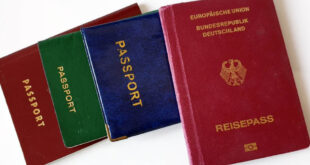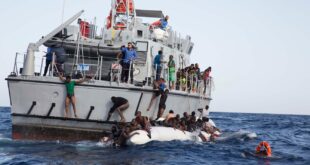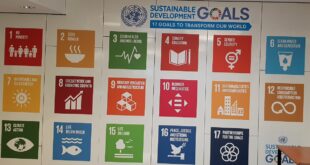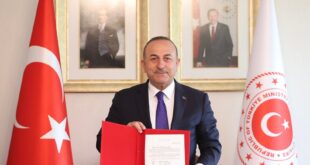Italy announced on Monday (9 January) that it would re-open its embassy in Libya’s capital as part of a broader effort to curb migration departures from the North African country.
“The Italian ambassador is returning to Tripoli after two years. A great gesture of friendship to the Libyan people. Now more controls on migrant departures,” Italy’s foreign minister Angelino Alfano wrote on Twitter.
The diplomatic envoy is the first for any Western nation after governments pulled out when Libya was left to the mercy of warring militant groups. The turmoil has also allowed the Islamic State jihadist group to gain a foothold.
The general lawlessness helped turn the country into the main staging ground for people seeking to reach the EU from the North African coast.
Frontex, the EU border agency, says the number of people detected crossing the Mediterranean Sea last year reached 181,000, “the highest number ever recorded” along the route.
The vast majority come from Nigeria, followed by nationals from Eritrea, Guinea, Ivory Coast, and Gambia, who disembark on packed and often unseaworthy boats towards Italy.
Italy’s interior minister Marco Minniti had also announced, in Tripoli, a pact to boost co-operation with Libya against migrant smuggling, terrorism and human trafficking.
Italian news agency Ansa reports that Minniti had met with senior Libyan ministers, including the UN-backed prime minister, Fayez el-Sarraj.
Minniti said the two countries had entered into a “new phase” in terms of cracking down on criminal organisations that exploit migrants.
“During the meeting, Italy’s full support was reaffirmed for the national unity government and Libya’s role in fighting terrorism both on a regional level and a national one, in particular in the Mediterranean region,” he said.
The EU’s naval operation Sophia has also been training the Libyan navy since last October.
The Italian-led operation is mandated to implement an UN arms embargo on the high seas off the Libyan coast.
As of late December, it had registered some 253 “arms embargo events” and delivered over 100 smugglers to the Italian authorities.
The four-phase operation is seeking to access and expand into Libya’s territorial and coastal waters but first requires the backing of a United Nation Security Council resolution.
Nikolaj Nielsen/EUObserver
 THE AFRICAN COURIER. Reporting Africa and its Diaspora! The African Courier is an international magazine published in Germany to report on Africa and the Diaspora African experience. The first issue of the bimonthly magazine appeared on the newsstands on 15 February 1998. The African Courier is a communication forum for European-African political, economic and cultural exchanges, and a voice for Africa in Europe.
THE AFRICAN COURIER. Reporting Africa and its Diaspora! The African Courier is an international magazine published in Germany to report on Africa and the Diaspora African experience. The first issue of the bimonthly magazine appeared on the newsstands on 15 February 1998. The African Courier is a communication forum for European-African political, economic and cultural exchanges, and a voice for Africa in Europe.






























